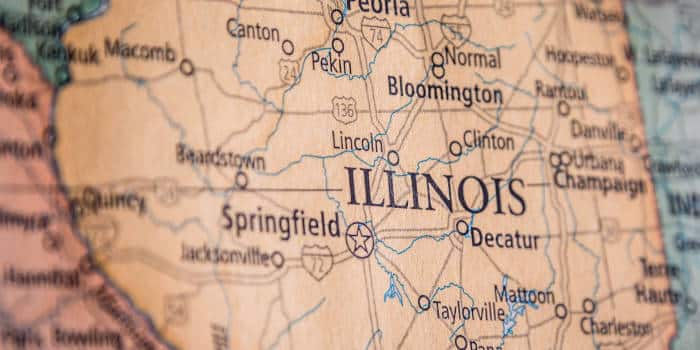Illinois Sportsbooks Charge New Fees Amid Tax Law Changes

UPDATE: Sports bettors in Illinois are facing new fees as sportsbooks react to a recently implemented tax law. Starting this month, betting companies are enforcing additional charges, fundamentally altering the landscape for casual gamblers.
The new tax, which took effect on July 1, mandates sportsbooks to pay $0.25 for each of their first 20 million bets annually. After reaching that threshold, the fee increases to $0.50 per bet. State officials estimate this could generate around $36 million for Illinois’ budget, but the immediate impact on bettors is raising alarms.
As the football season approaches, sportsbooks are adapting in various ways. Most notably, bet365 has introduced a $0.25 fee for all bets under $10, while wagers of $10 or more remain unaffected. If a bet is canceled or voided, the fee is refunded. Meanwhile, industry giants FanDuel and DraftKings have imposed a $0.50 fee on every single bet, regardless of its size.
The response from operators varies. Companies like Caesars and Fanatics have opted for smaller fees, while BetMGM, Hard Rock Bet, and BetRivers have increased their minimum bet requirements instead of adding direct fees.
Casual bettors are feeling the brunt of these changes. The Sports Betting Alliance has publicly criticized the tax, arguing it unfairly burdens small-time players. Their data reveals that more than half of all bets in Illinois are $5 or less. Experts warn that these increased costs might drive bettors to unregulated offshore platforms, which offer minimal consumer protection and evade state taxes.
In a statement, Flutter Entertainment, the parent company of FanDuel, expressed concerns about the new fee structure, emphasizing that it is necessary for their operations in Illinois. However, they assured customers that they would eliminate the charge if lawmakers reconsider the tax. They also cautioned that these rising costs could lead customers to seek illegal betting sites with lower prices.
Public sentiment is turning sour as bettors take to social media to voice their frustrations. Many casual gamblers report that the higher fees have rendered small bets prohibitively expensive, prompting them to consider gambling in neighboring states or on unregulated sites instead. Market analysts warn that such responses could shrink the legal betting market, undermining the very tax revenue the state hopes to generate.
Despite the backlash, Illinois stands as one of the largest sports betting markets in the United States, and most companies are unlikely to abandon the state. As the football season gains momentum, the consequences of Illinois’ tax law will become increasingly apparent. Both sportsbooks and gamblers are adjusting to a more costly betting environment, while many observers are keenly watching for any potential legislative changes in response to growing criticism.
Stay tuned for further updates on this evolving situation as it continues to unfold.






